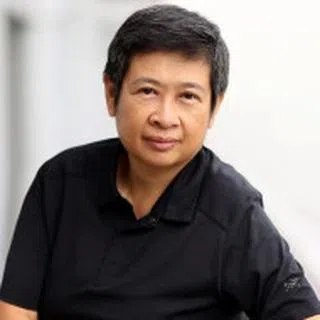[Video] Future 365: Lee Kai-fu on AI - Painting humanity's future
In the first of Lianhe Zaobao's Future 365 interview series, Lianhe Zaobao executive editor Han Yong May speaks to chairman and CEO of Sinovation Ventures Lee Kai-fu, who gives his take on the future of AI and how he thinks it will impact our lives, given the improvements seen over the past decade.
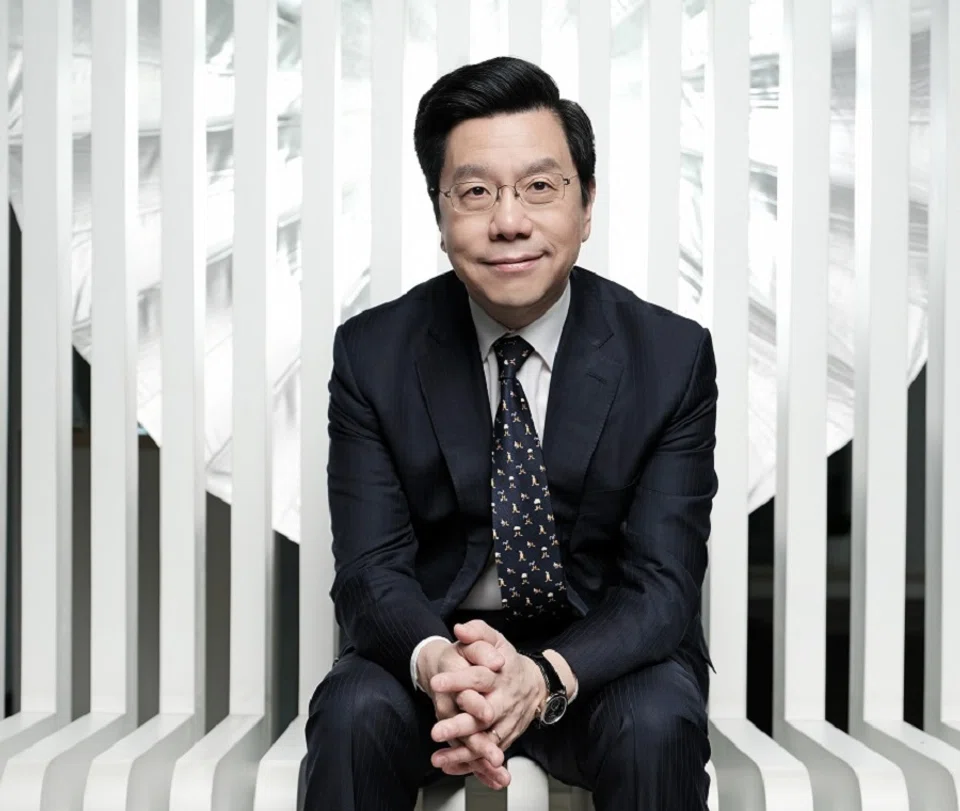
Since the emergence of ChatGPT towards the end of 2022, most experts researching the field of AI have been telling us quite definitely that there will be a boom in AI applications in the next decade, and that regardless of our field of work, AI will become a part of our lives as a tool and a partner, in a new era for humanity.
The Future 365 series by Lianhe Zaobao is not a divination-type series of predictions, but a fresh annual initiative to invite experts and scholars from various fields to talk about possible shifts in the coming year, and take us through forecasted trends in the next five to ten years.
The first interviewee in this series is AI expert Lee Kai-fu, chairman and CEO of Sinovation Ventures.
Making sense of a new era
Lee was on Time Magazine's inaugural TIME100 Most Influential People in AI in 2023. The 62-year-old Taipei-born, US-educated Lee was the first Chinese academic to research AI, and is one of the leading AI scientists around, besides being an expert in venture capital.
This was an online video interview, with Lee at Sinovation Ventures in Zhongguancun in Beijing's Haidian district, and me in Singapore at the SPH News Centre in Toa Payoh. After the interview, I used an AI software to convert an hour's worth of audiovisual material into text; it was highly accurate, saving at least a day's work.
I was reminded of what Lee said in 2007, that if a judgement call on a human task can be made within five seconds, or if it is repetitive, it will probably be replaced by AI.
"I feel that today's AI has surpassed humans. So I think humans have to stop taking ourselves as the gold standard." - Lee Kai-fu, Chairman and CEO, Sinovation Ventures
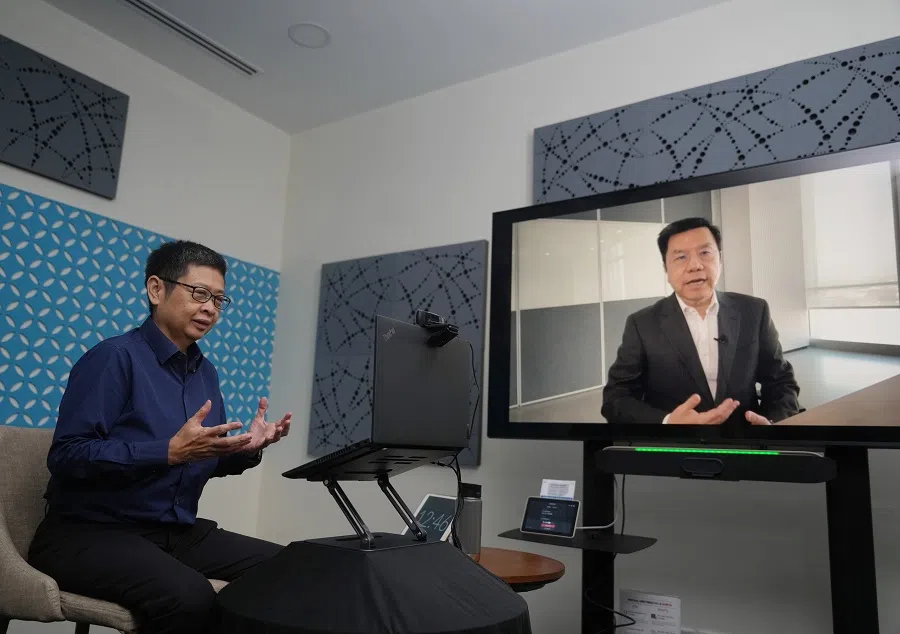
A friendly android cat with a pouch full of gadgets like Doraemon has not yet appeared, but AI is already very much a part of our lives. How should we make sense of this new era?
Enter AI 2.0
From AlphaGo, the first computer programme to beat a human at the board game Go, to ChatGPT, the gap between AI and humanity is closing. What other major developments and changes will occur in this field in the next one to five years?
"That is an interesting question. The assumption is that humans are better than AI, and AI is closing the gap on humans. But this is a mistaken assumption."
Lee feels that 20 years ago, AI could do about 1% of what humans could do, with that percentage rising to 5% after the emergence of AlphaGo. Today, however, AI can do so many things we cannot imagine. It can produce more in-depth content than a human, imitate realistic human dialogue, and even come up with new medicines and new treatments.
"In the past, humans were the most intelligent creatures on earth. Now, 60-70% of what humans can do, AI can do as well or even better. If we look at overall intelligence, I feel that today's AI has surpassed humans. So I think humans have to stop taking ourselves as the gold standard."
AI First: every application connected to an AI brain
Of course, humans are still able to do things that AI cannot, and vice versa. In fact, each has its own advantage - but today, humans are no longer the most intelligent beings on earth.
"Humans let AI learn what we need to learn and then come back and teach us." - Lee
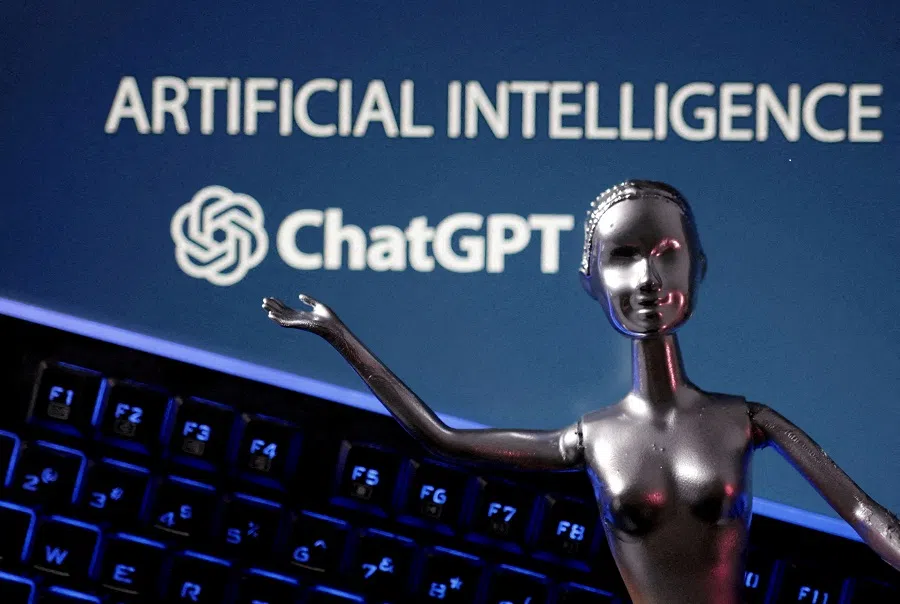
Even so, AI can empower current human functions. Humans need to work, play, socialise, communicate, learn and so on, all of which are supported by either a PC or a mobile network application. Having every application connected to an AI brain is what Lee calls the AI First concept.
For instance, in the past when we had to write a report, we would open a word processing software, start with a blank page, and type everything out word by word. An AI assistant has an IQ equivalent to 100 professors, and would be able to help humans read all data that needs to be read.
"Humans have narrow thinking and extremely low bandwidth, and cannot take in knowledge or the gist of theses in a short time. When we read, we can only read relatively simple material, because our brains cannot take in a 5,000 page essay just like that, or come to a pithy conclusion. AI can quickly produce a PowerPoint to explain things to us. Humans let AI learn what we need to learn and then come back and teach us."
"AI is not flawed like a human. You can ask it not to lose its temper, or not to be sarcastic and nasty, and it will only say nice things." - Lee
What AI can do
Lee predicted that within two years, half of our online interactions will be with AI, which is able to do three things that humans are unable to.
First, it will get to know each individual it interacts with, and satisfy their needs, and create a friend the user likes based on their characteristics.
Second, through a process called alignment, AI can make itself especially humorous, adorable, empathetic and so on. It can understand you, and become a companion and friend you like interacting with.
Third, AI is not flawed like a human. You can ask it not to lose its temper, or not to be sarcastic and nasty, and it will only say nice things.
A year ago, the fastest technology or software to reach 100 million users in human history was TikTok, which hit the mark in roughly nine months. After ChatGPT was launched, it hit 100 million users in two months, while Character AI did it in six months. Now, the top two best technology applications in the world are both AI applications, and in just two years, the top 10, 20 or even 100 applications could likely be AI applications. If you remove AI, these applications will not work.
Lee said firmly, "We are now firmly in the era of AI 2.0. All applications will be rewritten, and this is a revolution that cannot be missed."
"... what can us humans do that AI cannot? Perhaps only two things: the trust, love, and emotions between people, as well as human creativity and the ability to deal with complex matters." - Lee
Loneliness without trust and love
One must be passionate about the development of AI, but not at the expense of human emotions.
"Let us do some soul-searching; what can us humans do that AI cannot? Perhaps only two things: the trust, love, and emotions between people, as well as human creativity and the ability to deal with complex matters."
In 2013, Lee was diagnosed with cancer, with over 20 tumours in his body. After 17 months of treatment, the cancer has gone into remission. This illness has led him to feel even deeper the connections with family, which is something that AI cannot replace.
He realised that science today cannot explain the spiritual connection, trust and love shared between people. AI can help people do many things that humans do now, but at the same time, there may be many things that AI cannot do, including replacing love between people.
"If people all turn towards AI due to unhappiness in human interactions, then everyone could end up being lonely - that would be extremely bad." - Lee
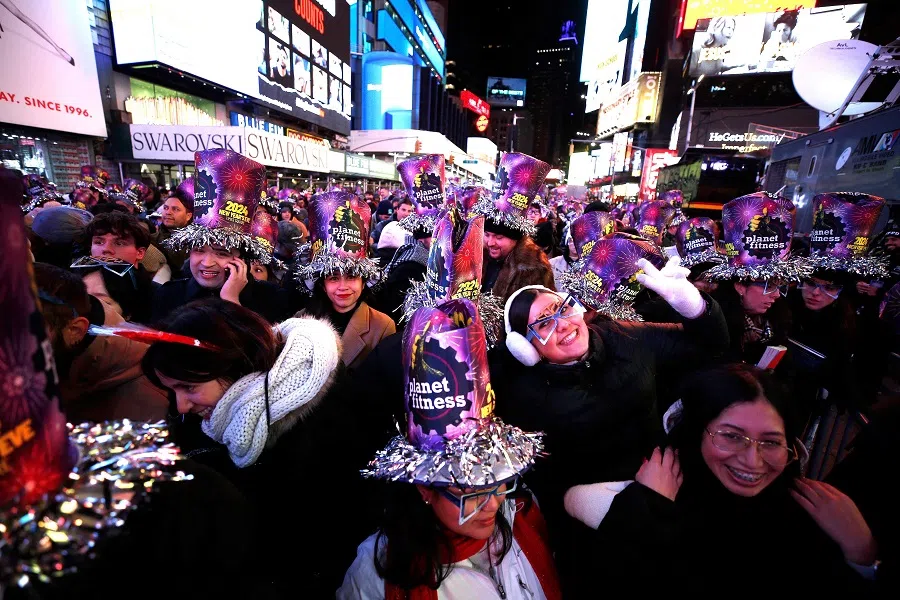
Also, AI can help humans free themselves from repetitive labour, and allow us to spend more time on things we are more adept at, or things that bring us true growth and joy.
It is an Asian tradition to feel the joy of being part of a big family, or for each individual to have their own hobbies, such as photography, calligraphy and so on. Even if not at a world-class level, being able to spend time on something that one loves brings out the meaning of life.
"There is a lot of unhappiness in the world, but we humans should not run away from it, or run away from people. If people all turn towards AI due to unhappiness in human interactions, then everyone could end up being lonely - that would be extremely bad."
US strong in technology, China good at applications
Presently, many are focusing on geopolitical issues, and the China-US conflict has expanded to various sectors, especially in the technological field. Late last year, the US placed restrictions on the export of advanced GPU chips to China.
GPU is a key factor in computing power or suanli (算力), and curbing the export of GPUs is effectively putting a chokehold on China's development of AI computing power. Besides computing power, the development of AI is also dependent on data and algorithms.
Lee said the US is ahead in GPU, and it has tried to consolidate and safeguard its lead by leveraging this advantage. But perhaps we are overlooking two things. First, when it comes to data collection and optimisation, China's huge population means that it can do well in data collection with conscientious effort.
"WeChat is far easier to use than WhatsApp, and TikTok/Douyin is far easier to use than Instagram, and Meituan is far easier to use than DoorDash." - Lee
Second is the development of sophisticated software. There is a need to ensure that AI computing, learning and logic is done well. This involves not only algorithms, but also software engineering, including managing internet protocol and how to deal with the transfer of large amounts of data.
"When it comes to ensuring efficient usage of each GPU, China does not lag behind any country."
Lee felt there is no doubt that China is the world's best in "development of consumer applications". China is not the leader in all applications and softwares, but when it comes to frequently used mobile applications, China is definitely ahead.
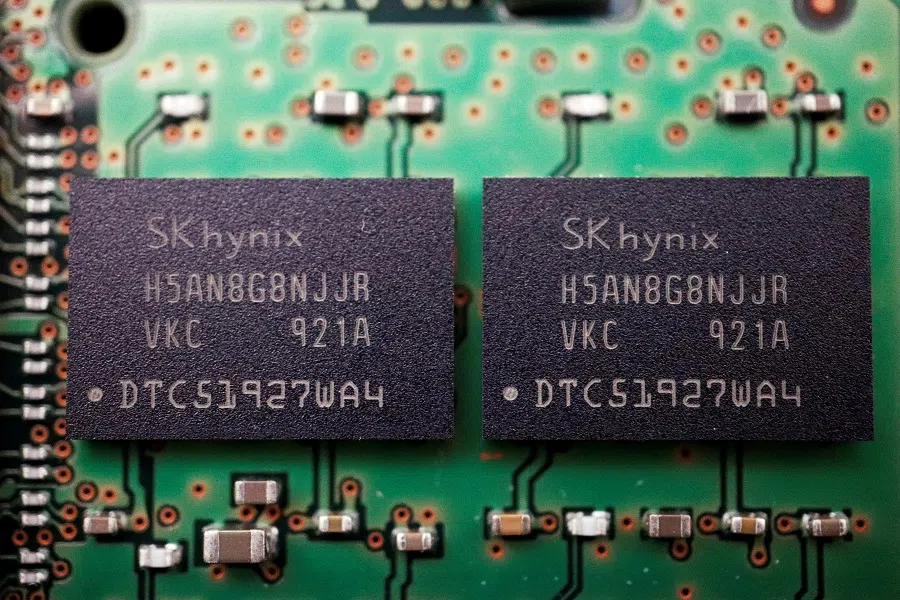
"WeChat is far easier to use than WhatsApp, and TikTok/Douyin is far easier to use than Instagram, and Meituan is far easier to use than DoorDash. Shein, which recently expanded overseas, and Pinduoduo's Temu, are all world-class. In fact, in the past decade or so, China has quietly become the manager, developer and entrepreneur of the world's best, most numerous [app] products."
Consumer-facing applications are always an important driver of new platforms and technology; this is true of the mobile internet era, and Lee believes it will be the same in the AI era, and so he feels it is still very hard to say who would come up on top.
What role can small countries like Singapore play?
Small countries like Singapore seem relatively insignificant when it comes to talent and data. What role can such countries play in the future AI world?
Lee felt that there are in fact many opportunities for Singapore. First, Singapore is among the leaders in scientific research. Second, Singapore's domestic market is small and it has to look overseas - companies that are doing well currently such as Sea, Grab and so forth all look towards Southeast Asia or even larger markets.
Ironically, for countries with a larger domestic market, such as with populations in the tens of millions, many entrepreneurs may only produce things needed in their own countries, and do not reach the scale of companies like Grab and Sea.
Third, Singapore is the most technologically competitive country in the rapidly growing region of Southeast Asia. With its very astute government, it should be able to push good policies that take care of some major issues. This would attract some tech companies to choose Singapore as a testing ground, before pushing their products to the whole world.
Finally, Singapore has deftly managed its relations with both China and the US. Now, there are many Chinese and Americans who are willing to come to Singapore, or collaborate with Singapore.
"If the government invests a lot of resources to spur Singapore to become one of the top five countries in the world in the AI era, I think the opportunity is there." - Lee

Lee felt that Singapore's entrepreneurial environment is rather good, but it is not as large or powerful as China and the US. He felt Singapore should leverage some of its unique advantages, one of which is a very astute government that can make bold and ambitious moves, so that when the AI era comes, Singapore will not lag behind, but can be among the world's leaders.
"The AI era is coming too quickly. In the past two years, AI has improved from an average person's IQ to an IQ higher than any human. If the government invests a lot of resources to spur Singapore to become one of the top five countries in the world in the AI era, I think the opportunity is there. Singapore has the ability and the advantages, but it must act quickly to seize this opportunity."
Lee Kai-fu's recommended booklist:
The Worlds I See: Curiosity, Exploration, and Discovery at the Dawn of AI by Li Fei-Fei
AI 2041: Foreseeing 10 New Worlds in the Future by Lee Kai-fu and Stanley Chan
Principles by Ray Dalio
No Rules Rules: Netflix and the Culture of Reinvention by Reed Hastings and Erin Meyer
What It Takes: Lessons in the Pursuit of Excellence by Stephen A. Schwarzman
This article was first published in Lianhe Zaobao as "融会人工智能 智绘人类未来".
